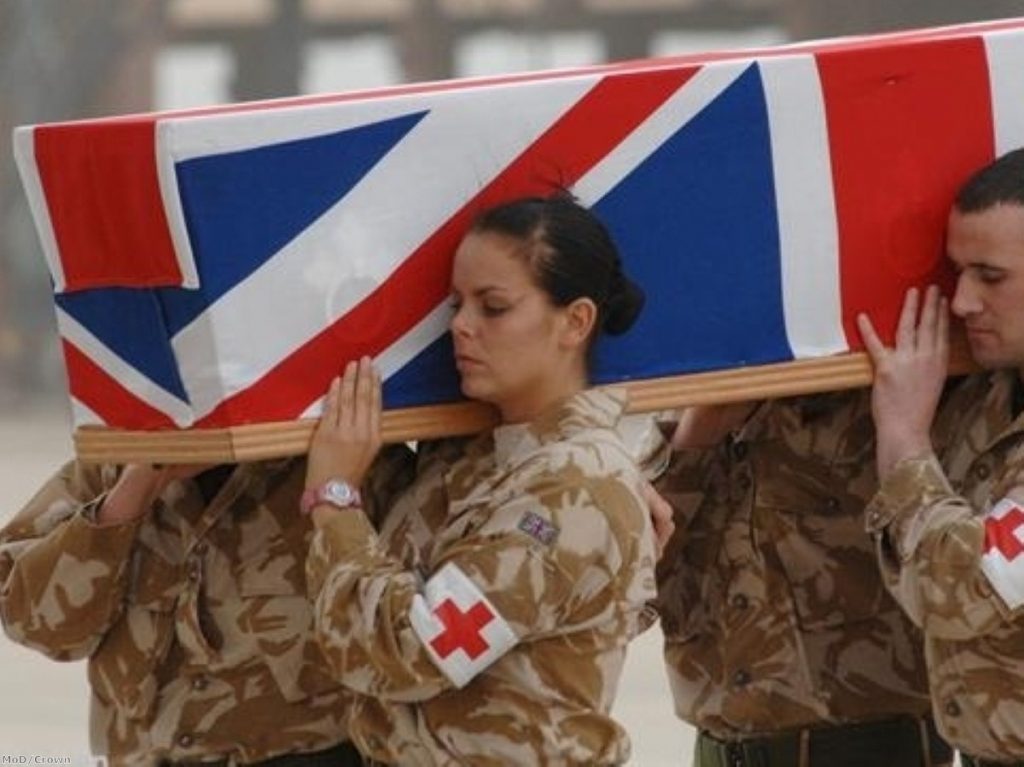Iraq Body Count takes on Chilcot
By Ian Dunt
One of the most respected organisations to emerge from the Iraq war launched a bitter attack on the Chilcot Inquiry today, branding it “flawed” and “derisory”.
Iraq Body Count (IBC), which earned a reputation for its cautious but reliable methodology in assessing the level of civilian casualties during the conflict, criticised the Inquiry for paying such little attention to the war’s effect on ordinary Iraqis.
The group decided to publish correspondence between itself and Sir John Chilcot calling on him to investigate civilian casualties, sent before the public interview sessions began.


“In our view, the ‘very broad’ terms of reference of the Inquiry provide you with more than an opportunity to fully and properly investigate Iraqi casualties: they in effect mandate you to do so,” the letter reads.
“The Iraq Inquiry now has before it a simple choice. On the one hand, it can allow the dead to inform the lessons Britain draws from its military intervention in Iraq. On the other, it can deem them irrelevant.
“If, as we believe, the latter course is unthinkable for a civilised society, then the facts of Iraqi deaths must first be established, as best they possibly can be.”
The group then heard back from Sir John, who said: “The Inquiry’s terms of reference are broad and require us to focus on the lessons that can be learned from the UK’s involvement in Iraq during 2001-9. The information you have collated will be very useful to help us in this task.”
But IBC was unimpressed with the amount of time dedicated to the subject of Iraqi casualties while the Inquiry questioned witnesses, calling it “derisory”.
“Earlier official Inquiries into the war have been criticised for having too narrow a remit,” the group said.
“In contrast, the Chilcot Inquiry has evidently been given one so broad and indeterminate that it has been able to obsess minutely over the ‘war at home’ to the detriment of everything else. Indeed one would almost think that the Iraq war largely took place in Britain.
“If we cannot engage with the bitter experience of the Iraqi people, if we cannot reach out with empathy to understand even the simple facts of their losses, then that says something about a different kind of damage within our mind-set in Britain and the West. And this in itself is a salutary if uncomfortable lesson we can indirectly learn from the flawed Chilcot Inquiry to date.”
The only moment at which the issue of Iraqi casualties was brought up, the group said, was when former armed forces minister Adam Ingram told the panel he believed a government agency – possibly the Foreign Office or the Department for International Development – should have been counting casualties, but that he would have opposed any move to designate the responsibility to the Ministry of Defence.
The Iraq Inquiry has now closed its public evidence sessions, although it reserved the right to recall witnesses if statements conflicted with each other. It will undertake a fact-finding trip to Iraq at some point, although the visit will be kept tightly under wraps until the committee members have returned to the UK for security reasons.

